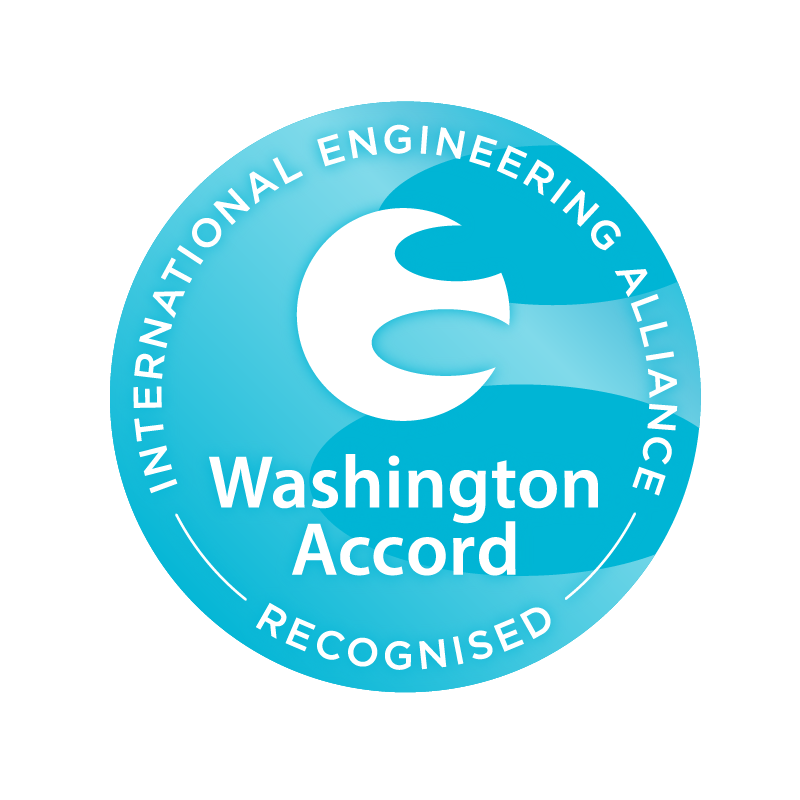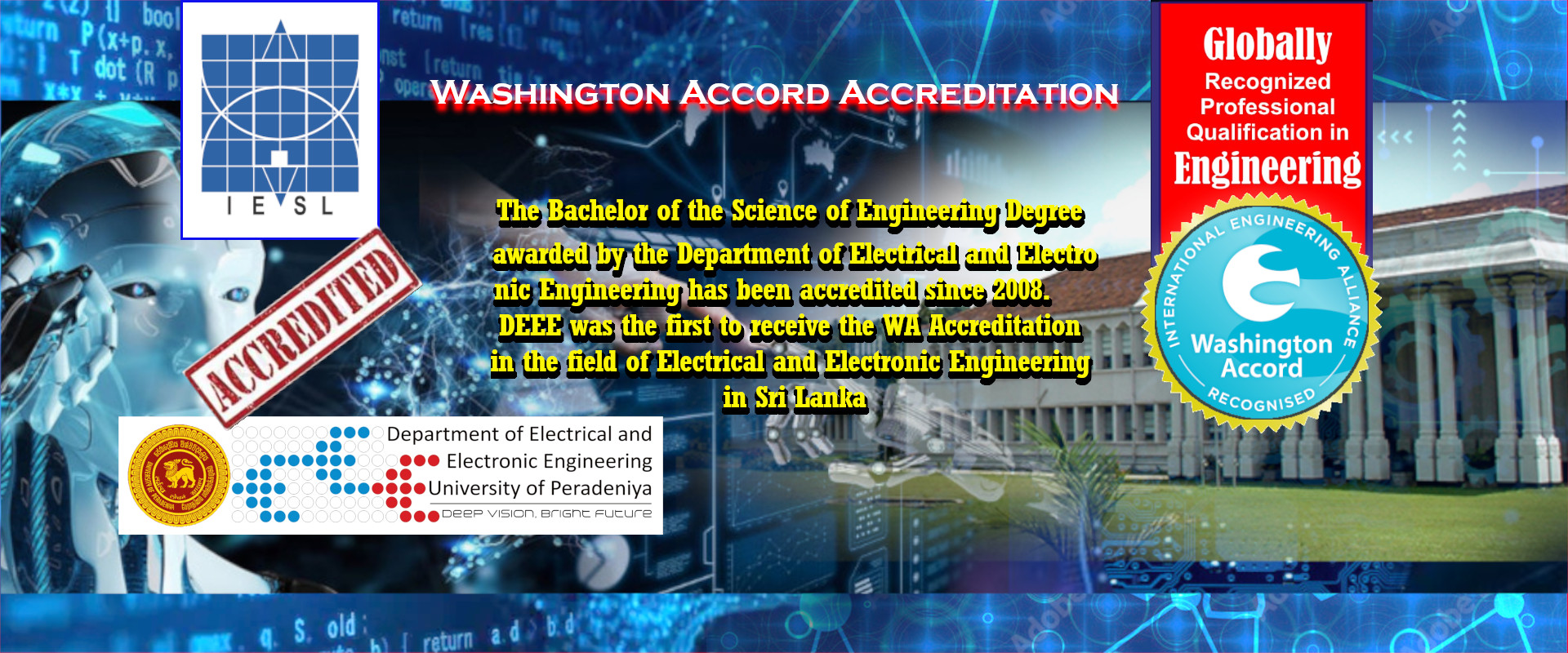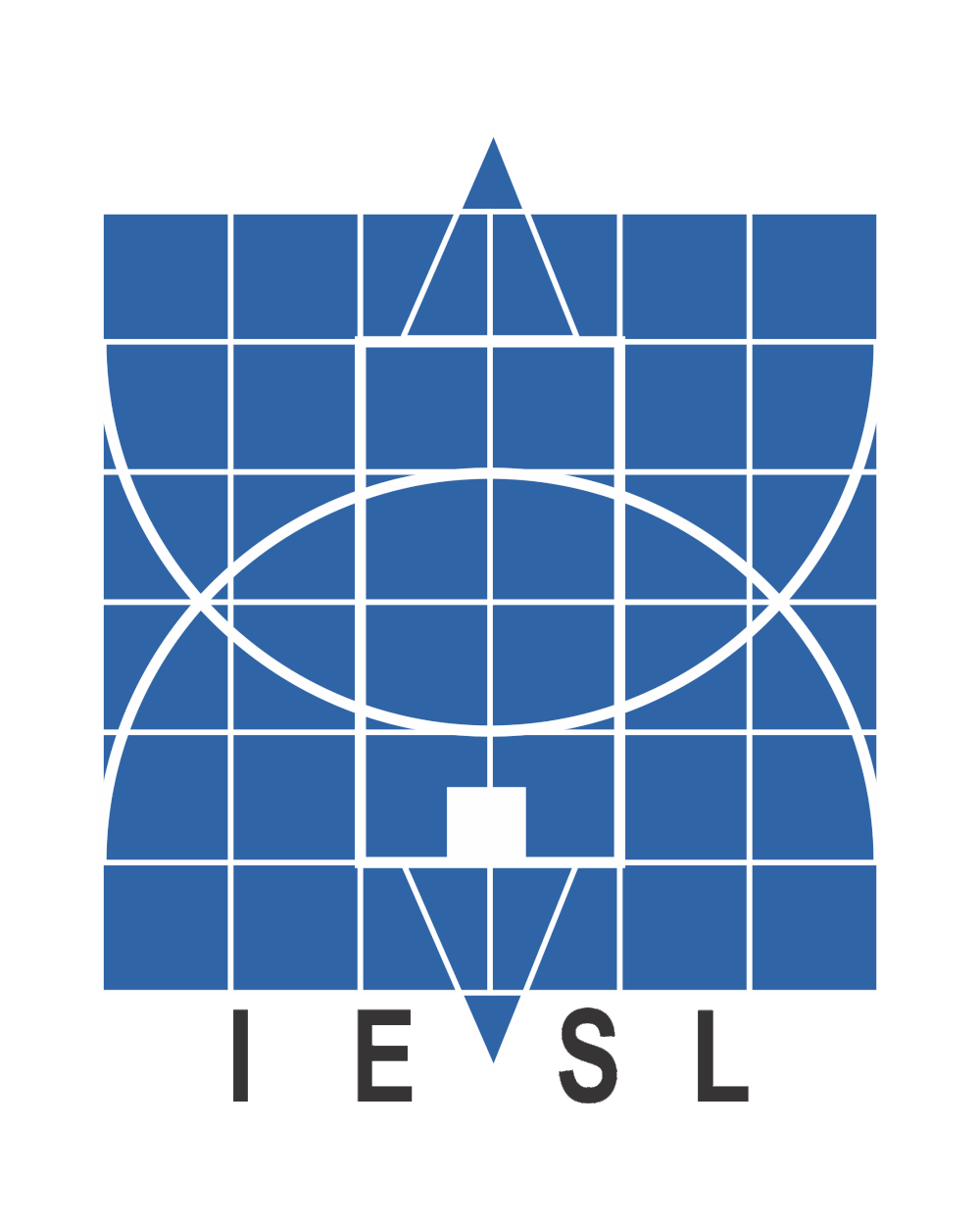Washington Accord
The Washington Accord is an international agreement among engineering organizations from various countries that aims to recognize substantial equivalency in the accreditation of engineering degree programs. This agreement facilitates the mobility of engineering graduates across borders by ensuring that their qualifications meet recognized global standards of engineering education. Established in 1989, the Washington Accord has been instrumental in promoting quality assurance and mutual recognition of accredited engineering programs among signatory countries. It promotes the highest academic standards in engineering education and facilitates the international recognition of engineering qualifications, contributing to global workforce mobility and collaboration in the field of engineering.

SIGNOTORIES
Qualifications accredited or recognized by other signatories are recognized by each signatory as being substantially equivalent to accredited or recognized qualifications within its own jurisdiction. The Signatories include Australia, Canada, China, India, Japan, Russia, Singapore, the United Kingdom, the United States and many more.

IESL - Signatory to WA
The Institution of Engineers, Sri Lanka (IESL) is the authoritative body responsible for overseeing the engineering profession in Sri Lanka, as mandated by its Act of Incorporation, Act No. 17 of 1968. The IESL accredits both four-year and three-year full-time engineering degree programs that are conducted in Sri Lanka, and it has established robust policies, criteria, and procedures for their accreditation, as outlined in the respective Accreditation Manuals.
On June 13, 2014, the IESL became a signatory to the Washington Accord, which unequivocally recognizes the academic rigor of the four-year full-time engineering degree programs accredited by the IESL. As a result, these programs are now considered substantially equivalent to those accredited by the other signatories to the Washington Accord.

List of 4 year Accredited Engineering Degree Programs
The Bachelor of the Science of Engineering Degree Program offered by the Department of Electrical and Electronic Engineering has been accredited since 2008.
Quality of Graduates
Graduates from an accredited program must have acquired the Generic Attributes (GA) listed in Table 1. This is essential to prepare them adequately to enter the profession and practice engineering at a professional level. It is imperative that the program learning outcomes (PLOs) are consistent with these graduate attributes. Knowledge and Attitudes (KA) are crucial to acquiring graduate attributes, and the program must ensure that graduates acquire the knowledge and attitude profile listed in Table 2.
TABLE1: GENERIC ATTRIBUTES OF AN ENGINEERING GRADUATE
| Attribute | Description | ||
|---|---|---|---|
| GA1 | Apply knowledge of mathematics, natural science, computing and engineering fundamentals, and an engineering specialization as specified in KA1 to KA4 respectively to develop solutions to complex engineering problems | ||
| GA2 | Identify, formulate, research literature, and analyze complex engineering problems reaching substantiated conclusions using first principles of mathematics, natural sciences and engineering sciences with holistic considerations for sustainable development (KA1 to KA4) | ||
| GA3 | Design creative solutions for complex engineering problems and design systems, components, or processes to meet identified needs with appropriate consideration for public health and safety, whole-life cost, net zero carbon as well as resource, cultural, societal, and environmental considerations as required (KA5) | ||
| GA4 | Conduct investigations of complex engineering problems using research methods including research-based knowledge, design of experiments, analysis and interpretation of data, and synthesis of the information to provide valid conclusions (KA8) | ||
| GA5 | Create, select and apply, and recognize limitations of appropriate techniques, resources, and modern engineering and IT tools, including prediction and modeling, to complex engineering problems (KA2 and KA6) |
||
| GA6 | When solving complex engineering problems, analyze and evaluate sustainable development impacts on society, the economy, sustainability, health and safety, legal frameworks, and the environment (KA1, KA5, and KA7) | ||
| GA7 | Apply ethical principles, and commit to professional ethics and norms of engineering practice, and adhere to relevant national and international laws. Demonstrate an understanding of the need for diversity and inclusion (KA9) | ||
| GA8 | Function effectively as an individual, and as a member or leader in diverse and inclusive teams and in multi-disciplinary, face-to-face, remote, and distributed settings (KA9) |
||
| GA9 | Communicate effectively and inclusively on complex engineering activities2 with the engineering community and with society at large, such as being able to comprehend and write effective reports and design documentation, make effective presentations, taking into account cultural, language, and learning differences. | ||
| GA10 | Apply knowledge and understanding of engineering management principles and economic decision-making and apply these to one’s work, as a member and leader in a team, and to manage projects in multidisciplinary environments | ||
| GA11 | Recognize the need for, and have the preparation and ability for i) independent and life-long learning ii) adaptability to new and emerging technologies, and iii) critical thinking in the broadest context of technological change (KA8) |
||
TABLE2: KNOWLEDGE AND ATTITUDE EMBEDDED WITHIN GRADUATE ATTRIBUTES
| Attribute | Description | ||
|---|---|---|---|
| KA1 | A systematic, theory-based understanding of the natural sciences applicable to the discipline and awareness of relevant social sciences | ||
| KA2 | Conceptually-based mathematics, numerical analysis, data analysis, statistics, and formal aspects of computer and information science to support detailed analysis and modeling applicable to the discipline | ||
| KA3 | A systematic, theory-based formulation of engineering fundamentals required in the engineering discipline | ||
| KA4 | Engineering specialist knowledge that provides theoretical frameworks and bodies of knowledge for the accepted practice areas in the engineering discipline; much is at the forefront of the discipline | ||
| KA5 | Knowledge, including efficient resource use, environmental impacts, whole-life cost, re-use of resources, net zero carbon, and similar concepts, that supports engineering design and operations in a practice area |
||
| KA6 | Knowledge of engineering practice (technology) in the practice areas in the engineering discipline | ||
| KA7 | Knowledge of the role of engineering in society and identified issues in engineering practice in the discipline, such as the professional responsibility of an engineer to public safety and sustainable development | ||
| KA8 | Engagement with selected knowledge in the current research literature of the discipline, awareness of the power of critical thinking and creative approaches to evaluate emerging issues |
||
| KA9 | Ethics, inclusive behavior, and conduct. Knowledge of professional ethics, responsibilities, and norms of engineering practice. Awareness of the need for diversity by reason of ethnicity, gender, age, physical ability, etc. with mutual understanding and respect, and of inclusive attitudes | ||
Accreditation Manual
IESL Accreditation Manual (Washington Accord) with effect from 02.03.2023.


